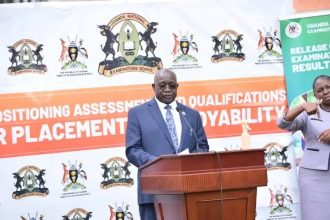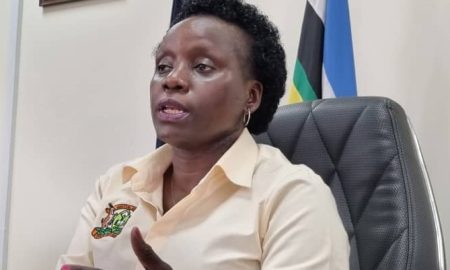Professor Lawrence Muganga, Vice-Chancellor of Victoria University, presented his case on Tuesday before the Education Policy Review Commission in Kampala, calling for the elimination of national examinations in Uganda. He emphasized the need for a shift towards continuous assessment, restructuring the Uganda National Examinations Board (UNEB), and the adoption of a regional-based education system.
Muganga argued that the current education system is jeopardized by its focus on national exams, prioritizing outcomes over competencies. Despite widespread agreement on the system’s ineffectiveness, reform efforts face resistance from powerful entities benefiting from the status quo, hindering meaningful change.
Expressing concern, Muganga criticized schools openly marketing themselves as guarantors of first-grade results. He highlighted the competitive enrollment in such schools, with a lack of scrutiny on what students actually learn. Muganga urged the Education Policy Review Commission to address the issue boldly and recommend the elimination of national exams, specifically the Primary Leaving Examination and the Uganda Certificate of Education.
Several entities, including the World Bank and the National Planning Authority (NPA), have advocated for the elimination of national exams. The NPA proposed phasing out the Primary Leaving Examinations (PLE) by 2027, deeming it irrelevant. Dr. Joseph Muvawala, Vice Chairperson of the commission, acknowledged a leaning towards eliminating certain national exams, raising concerns about the criteria for enrolling in higher schools.
Muganga suggested a comprehensive evaluation system, emphasizing continuous assessment. His proposal included district evaluations, school continuous assessment, projects, presentations, character assessment, patriotism, community involvement, volunteering, enterprise or apprenticeship, and emerging technology skills.
Advocating for a localized approach, Muganga proposed reforming UNEB into a Research, Evaluation, Assessment, and Development (READ) body. This revamped entity would collaborate with District Evaluation Boards, empowering districts to design curricula catering to their specific needs, eliminating cross-movement of learners.
While Dr. Jacklyn Makaaru Arinaitwe raised concerns about the district size, Muganga clarified that the school district could cover a larger area, depending on relevance and effectiveness. Former Agriculture Minister Victoria Ssekitoleko and the NPA supported localized syllabi, emphasizing the need for tailored education content.
Muganga urged the adoption of a competence-based education model from primary to higher learning institutions. He highlighted gaps in the transition to this approach in universities, criticizing their expenditure on paper and printing when students lack basic computer skills.
Challenging the traditional timeline for degrees, Muganga proposed a flexible approach, allowing gifted learners to progress at their own pace. He argued against rigid adherence to fixed education policies, emphasizing the importance of nurturing and advancing gifted learners.




















